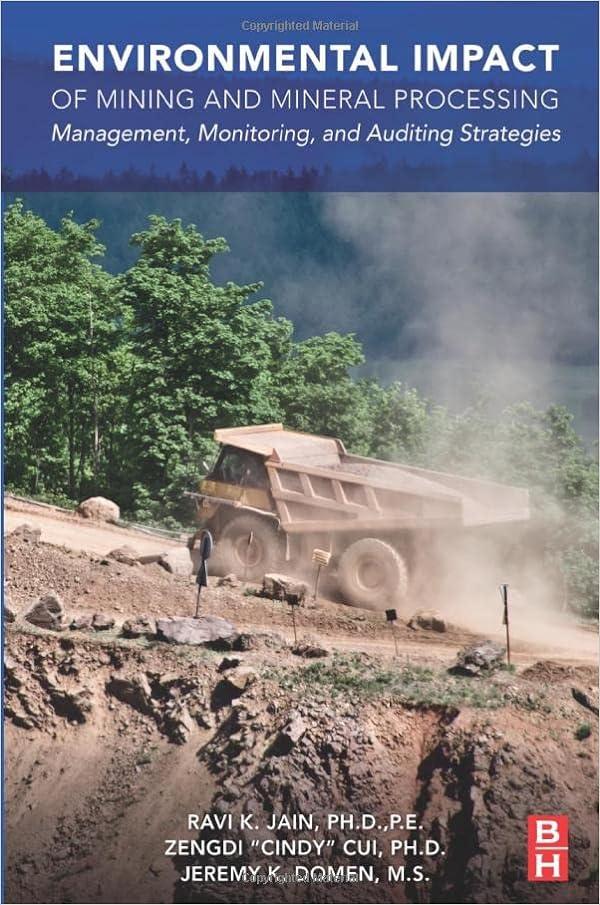Question
As a traffic management measure, it is proposed to ban the private car from a selected city street. It has been observed that the free
- As a traffic management measure, it is proposed to ban the private car from a selected city street. It has been observed that the free flow speed of traffic in one direction is 50 km/hr, and this speed is unaffected for values of density up to and including 200 veh/km. The present flow is 1200 veh/hour per lane.
The vehicle composition is 80% private cars, 18% commercial vehicles and 2% buses. Average occupancy of a car is 1.5 persons per car and average occupancy of a bus is 30 persons per bus. After the private cars are banned, it is expected that half of the persons previously travelling by car transfer to buses, the average occupancy remaining the same. Other cars will divert elsewhere. The average space occupied by each type of vehicles when stationary in the jammed condition is 7 m for cars, 12 m for commercial vehicles and 10 m for buses. (Hint: use this to find Kj)
Assuming the relation between speed and density to be linear and there will be light traffic conditions at both occasions (before and after traffic management measures),
-
- Derive the equation for maximum flow (using Kj and Vf only) using first principals
- Jam density & maximum flow per lane before the traffic management measure
- Jam density & maximum flow per lane after the traffic management measure
- Mean speeds of traffic in km/hour before the traffic management measure
- Mean speeds of traffic in km/hour after the traffic management measure
- In hope of developing a traffic generation model for an urban area, data has been collected on various variables that can affect the trip generation. Developed by a third party, the relationship among trip generation and variables are given in the partial correlation table below.
- Select the most suitable variable to model trip generation of this area and state the reasons for your selection
- Develop the trip generation model in the form y = a + bx using the variable household per acre. Show your calculations
- Using the developed model, predict the total number of trips for zone 04 in future knowing it has an area of 300 acres and that it will extend to contain 9000 households and that the average number of persons in a household will be 03
- State the assumptions that you made when you did the above forecasting on part c).
Table 06
|
| Households per Acre | Average income | Population | Average age |
| Trip Generation | 0.91 | 0.52 | 0.94 | 0.21 |
Table 07
| Zone No | 1 | 2 | 3 | 4 | 5 |
| Trip Generation per person | 1.40 | 1.60 | 1.50 | 1.00 | 1.20 |
| Households per acre | 40 | 60 | 50 | 20 | 30 |
Step by Step Solution
There are 3 Steps involved in it
Step: 1

Get Instant Access to Expert-Tailored Solutions
See step-by-step solutions with expert insights and AI powered tools for academic success
Step: 2

Step: 3

Ace Your Homework with AI
Get the answers you need in no time with our AI-driven, step-by-step assistance
Get Started


